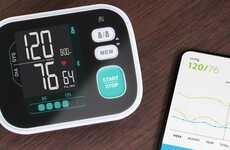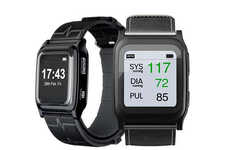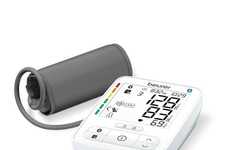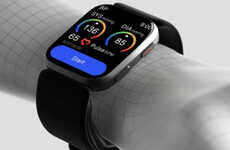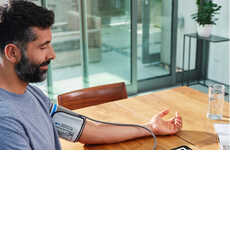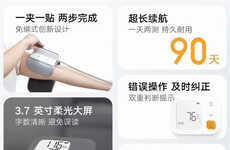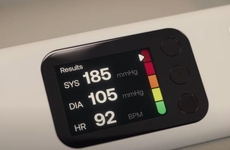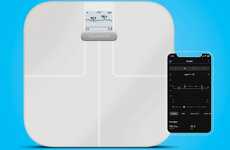
Garmin Launches the 'Index BPM Smart Blood Pressure Monitor’
Garmin has launched an FDA-cleared smart blood pressure monitor that is designed to work in cooperation with the brand’s other smart health wearables. The ‘Garmen Index BPM Smart Blood Pressure Monitor’ allows the wearer to measure their systolic and diastolic blood pressure using the device and the accompanying ‘Garmin Connect’ mobile app. The app allows Garmin devices like smartwatches, chest straps, smart scales, and bike computers to sync data with other Garmin products to keep track of your health no matter what is being used.
With the new blood pressure monitor, Garmin customers can set reminders to take their blood pressure, adjust it according to their arm size, and export reports as PDFs in order for them to be forwarded to medical professionals.
“When using the Index BPM as part of the larger Garmin ecosystem, all of your health and fitness data can be viewed right in Garmin Connect, helping to give you a more complete look at your overall health in one app,” said Dan Bartel, Garmin’s VP of global consumer sales.
Image Credit: Garmin
With the new blood pressure monitor, Garmin customers can set reminders to take their blood pressure, adjust it according to their arm size, and export reports as PDFs in order for them to be forwarded to medical professionals.
“When using the Index BPM as part of the larger Garmin ecosystem, all of your health and fitness data can be viewed right in Garmin Connect, helping to give you a more complete look at your overall health in one app,” said Dan Bartel, Garmin’s VP of global consumer sales.
Image Credit: Garmin
Trend Themes
1. Smart Health Wearables - There is an opportunity to create more wearable devices that complement and integrate with each other to provide a comprehensive overview of an individual's health and fitness.
2. Health Monitoring Apps - Developing an application that can collect and analyze health data from different wearables devices can help individuals to more accurately and conveniently track and manage their health.
3. Medical Device Integration - Integrating medical devices into larger ecosystems of health technologies can help patients and healthcare professionals more easily and effectively manage health conditions.
Industry Implications
1. Healthcare - Incorporating smart health wearables and monitoring apps can revolutionize the way patients and healthcare providers manage health and wellness.
2. Wearable Technology - There is an opportunity for wearable technology companies to develop more advanced and comprehensive health monitoring devices that work seamlessly with other wearables and mobile apps.
3. Mobile Application Development - Creating mobile applications that can collect and analyze health data from multiple sources can be a game changer in terms of personal health management.
5.5
Score
Popularity
Activity
Freshness


